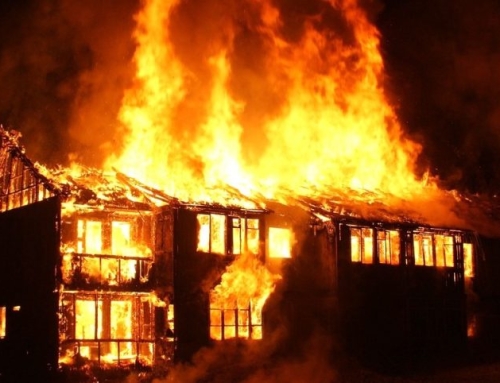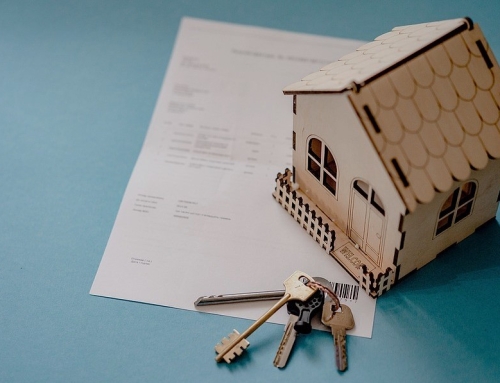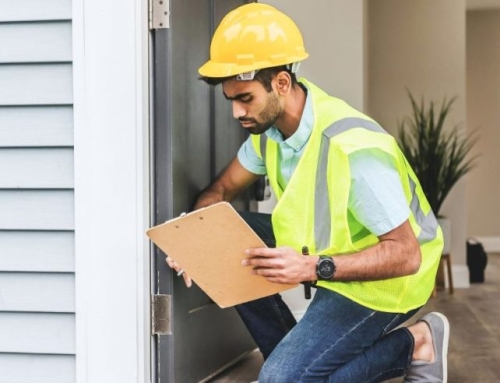What 2025 Could Bring for Your Real Estate Moves
Donald Trump, wildfires, winter storms, interest rates, international events -– every new year brings speculation about what might happen giving trending conditions, and 2025 is full of head-scratching developments that could affect real estate (and a lot more).
If you’re a real estate investor, buyer, seller, or just interested in the real estate market, the uncertainty and events we’ve inherited (or created) leave us plenty to unpack. And the wires are hot with speculative stories about what to watch for and what these things could mean for you.
Let us look at what many of those articles are warning us about – or encouraging us to take advantage of, for 2025.
Interest Rates Remain the Star of the Show
Homebuyers and sellers are mistily nostalgic for the halcyon days of interest rates under 3%, even if those times were but a few short years ago. Entering 2025, they were hovering around the 7% mark, which puts a damper on the real estate market, even if home loan interest rates are relatively moderate by historical standards.
Interest rates are a prime headwind for buyers who need to borrow money to buy property, so they remain the primary driver of real estate activity. This year is no exception. Given persistent inflation concerns, analysts expect the Federal Reserve to keep rates higher for longer. Few are expecting any interest rate hike, but don’t count on big drops in rate anytime soon. Mortgage rates hovering in the 6-7% range could continue, making affordability a top challenge for buyers. Which means they’ll be a challenge for sellers as well
Home sales are stalled with 7% mortgages
What this means for you:
For home buyers, that means either waiting for rates to fall, which has no guarantee or timeline, or locking in a rate sooner rather than later. That’s under the expectation that housing value will increase, and that if rates do drop considerably, you could refinance your home mortgage. Adjustable-rate mortgages (ARMs) also could regain appeal as a short-term solution.
Home sellers, recognizing that higher rates mean shallower buyer pools, have to price their homes for sale realistically or it’s going to sit there, dropping in value, buyer interest, and utility. Use your Realtor to gauge the size of the market for houses like yours.
Investors should consider putting more emphasis on cash flow rather than housing appreciation.
Will we see home prices decline in 2025?
What’s inflation and the economy going to do in 2025?
Analysts say it looks like inflation is sticking around, although abating, but slowly. So construction costs remain high, and supply chain issues could persist. The overall economic uncertainty tied to inflation will also play a role in buyer and seller confidence, and low confidence is a huge drag on home sales.
For new builds, that means you may pay a premium. For home renovations, factor in extra for both materials and labor.
The economy seems strong, though, which means more families willing and able to buy real estate. That also increases demand, which increases prices and values.
Tariffs and Trade: A Wild Card
President Trump is threatening more, which would raise costs on lots of supplies. One area of particular concern for homebuilders is Canadian lumber, a prime supplier for American homebuilders. If that happens, not only will prices go up but the buyer supply will diminish and available housing units will decline.
For investors, that could drive up prices (and values for existing rentals) and demand.
What does Trump’s focus mean for housing
The president issued a directive to find ways to lower housing costs, with emphasis on reducing regulation that adds both costs and time for construction. How much, how soon, and how effective these might be remain to be seen. But it’s on his radar, which means the federal government’s radar, so that’s something. However, zoning, construction regulation and restrictions tend to be more the local government area. Nonetheless, the focus is on all to do “something” about this. Many don’t expect solutions to come quickly.
What can President Trump do to help the housing crisis?
Trump’s path to lower housing costs
What’s immigration and the border mean for American housing?
The president’s push on immigration, particularly deporting millions of immigrants, likely will slow new home construction as immigrants make up a huge percentage of U.S. construction workers. And it will make construction labor costs rise, which also means higher housing prices.
That also will affect remodeling. That likely will mean slower construction, less inventory growth, and higher prices. This could be huge for builders and new construction buyers.
The larger economy also will be affected by immigration and deportations, particularly food. That’s the other industry with a considerable percentage of non-citizen workers.
If workers are removed, or if they just stay away from the fields out of deportation fear, some crops will go unharvested and food will become less available, driving up prices. And food prices are much more universally noticed and evident every day, lowering general confidence in the economy, which suppresses sales and prices.
Less immigration also could mean less demand, particularly in the ever-important low end of the market.
A ripple effect from the Los Angeles Fires
The first thing we might see after these devastating California fires is greater focus on homeowner’s insurance, particularly in areas that could be a fire danger. And the high costs of insurance claims in California will mean insurers will have to raise capital elsewhere, and guess what that means.
Will Southern California’s wildfires drive up Arizona homeowners insurance rates?
That huge rebuilding process also will gobble up materials, labor, investment, and focus from the rest of the country, which means higher prices.
California fires lesson – Is Your Homeowner’s Insurance Policy Adequate?
It also could mean a wave of Angelenos heading for less pricy environs, which translates into more money chasing less available housing in Arizona and elsewhere, which means higher prices. That’s good for the real estate you already own, not so good for what you might want to buy.
LA fires likely mean wave of renters and homebuyers headed to metro Phoenix
The 2025 U.S. real estate market will be shaped by multiple economic forces, political developments, and environmental challenges. While there are headwinds, opportunities abound for those who stay informed and active. Whether you’re looking to find your dream home, sell a property, or make a strategic investment, understanding the landscape is the first step to success.
Stay tuned to ArizonaRealtyNetwork.com for more insights and updates as the year unfolds.
Hal DeKeyser
The post What 2025 Could Bring for Your Real Estate Moves first appeared on Arizona Realty Network.
Related Posts

Contact Form














